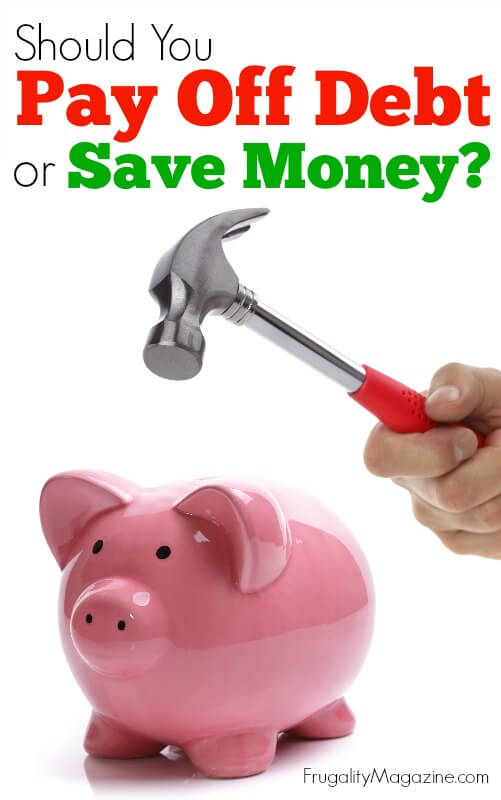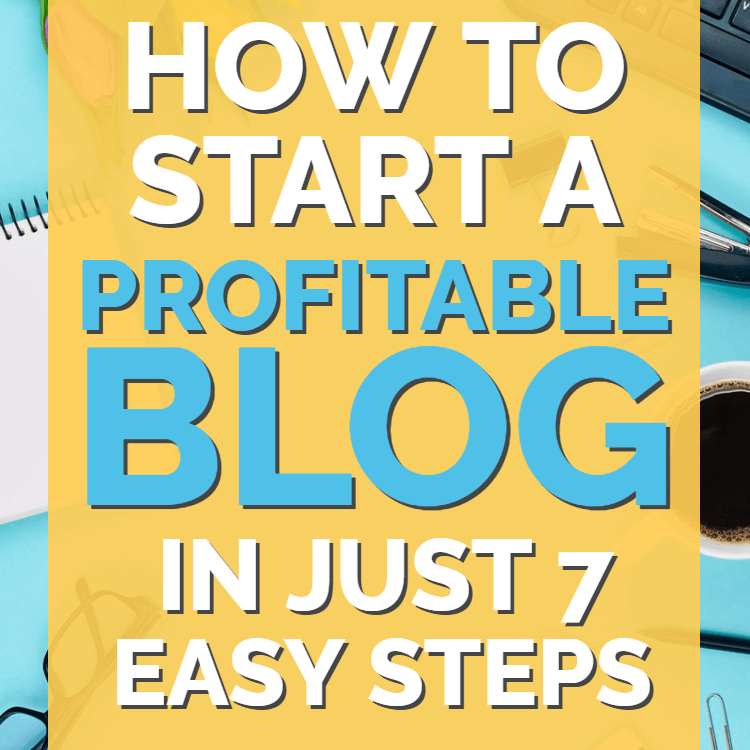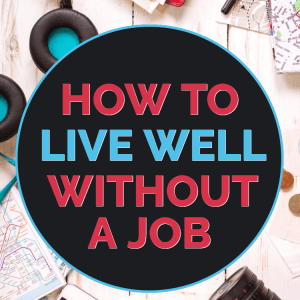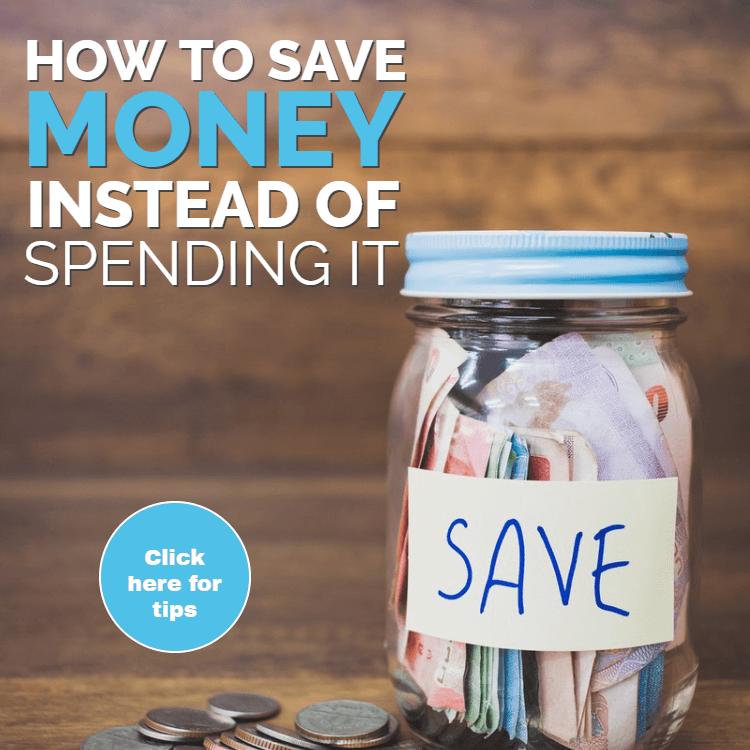Contents
One of the most commonly-asked questions I receive is whether someone should pay off debt or save money.
It’s a question that I myself wrestled with for some time when I first started to take control of my finances.
So I did a whole lot of research. I read books. I consulted other bloggers. I did some math. And I came up with what I think is the ideal answer to your question.
This article summarizes my findings and beliefs about whether you should start by saving money or paying off debt…
Saving Money
We all know that savings are important. Owning a bank account stuffed with money opens up all manner of options for us. It means we can buy a house or start a business or even retire early.
All very appealing options that many of us would like to achieve.
The end-goal will therefore always be sizeable savings, it’s just a question of whether it makes more sense to try and accomplish this before paying off debt or not.
Paying Off Debt
Debt takes us in the other direction. Debt reduces your choices in life and robs your future self of money.
Arguably, in most situations having savings and debt is a bit of crazy idea; after all, one cancels out the other.
If you want a strong financial future then getting out of debt should certainly be a priority; but should it come higher up your list than building your savings?
Paying Off Debt Vs Saving Money
As is clear both paying off debt and saving money should be considered vital principles for your financial future. The real question is which one should take preference? Here there are a number of factors that you need to consider:
Interest Rates
Debt and savings don’t remain stationery; they both grow over time thanks to interest. That means that the longer you have debt, the larger it will get. Conversely, the sooner you start saving the more money you’ll have in the end thanks to the wonders of compound interest.
The question is how these different rates compare. Almost without exception you’ll find that $1,000 in debt grows much faster than $1,000 in savings. In other words, the interest rate on debt tends to be higher than that offered on savings.
What this means is that if you maintain a debt balance while trying to save money you’re actually costing yourself extra money in the future.
Think about it; if your debt keeps on growing thanks to the higher interest rate then you’re going to have to pay off more debt in total before your balance reaches zero.
In other words, as long as the interest rate of your debt is higher than the interest rate of your savings it makes more sense to become debt free before putting money into a savings account.
Financial Control
What happens if you’re paying off debt, investing all your disposable income into debt repayments, and then you have some kind of financial emergency – like a surprise repair being necessary on your car or your washing machine?
Depending how close you’re budgeting this could create something of a problem. It’s entirely possible that you won’t have the cash to spare to cover such costs, and so you may have to rely on growing your debt burden again.
That replacement washing machine might have to go onto that credit card you’ve carefully been trying to pay off. Ouch.
Compare that to someone with savings. This person can quite easily buy the new machine without worry. Sure, it’s a bit annoying to take money out of your savings account but at least your high-interest debt isn’t increasing.
Psychology
How do you feel about debt? What about savings? These two factors can affect us in different ways. For some people debt is so stressful and distasteful that any kind of debt can lead to worry or lost sleep.
For other people debt is far less of a worry, yet owning a savings account stuffed with money makes them feel empowered and positive about the future.
Which kind of person are you? If you find that you strongly ally with either one of these two groups then you might want to consider factoring this into your decision-making process when trying to decide on whether to pay off debt or save money.
Conclusion
As you can see, there are benefits of both having savings and paying off debt. The question is really how to prioritize them; should you pay off debt or save money?
I believe the solution that works best for most people is this…
Start off with some saving. You want to build up an “emergency fund” that will help you cover any unexpected expenses. Most people recommend trying to save 2-3 months-worth of expenses, and that sum has worked well for me over the last few years.
Once you’ve got that sum of money, put it to one side and start instead paying off debt. Ignore your emergency fund and focus everything you have on becoming debt free.
If any “hiccups” arise, you know that you have your emergency fund to fall back on and you won’t need to slip deeper into debt.
Then, when your high-interest debt burden is finally paid off, now start saving properly for the future. Keep that emergency fund separate – so you can easily access it at any time if necessary.
Instead, when it comes to saving money, set up a higher-interest savings account to pay your money into. One where your money will grow, and where you won’t be tempted to touch it.
Why would you want to? After all, the longer you leave it there, the more it will grow. And you’ve always got your emergency fund set aside in the case of any financial emergency.











Add comment